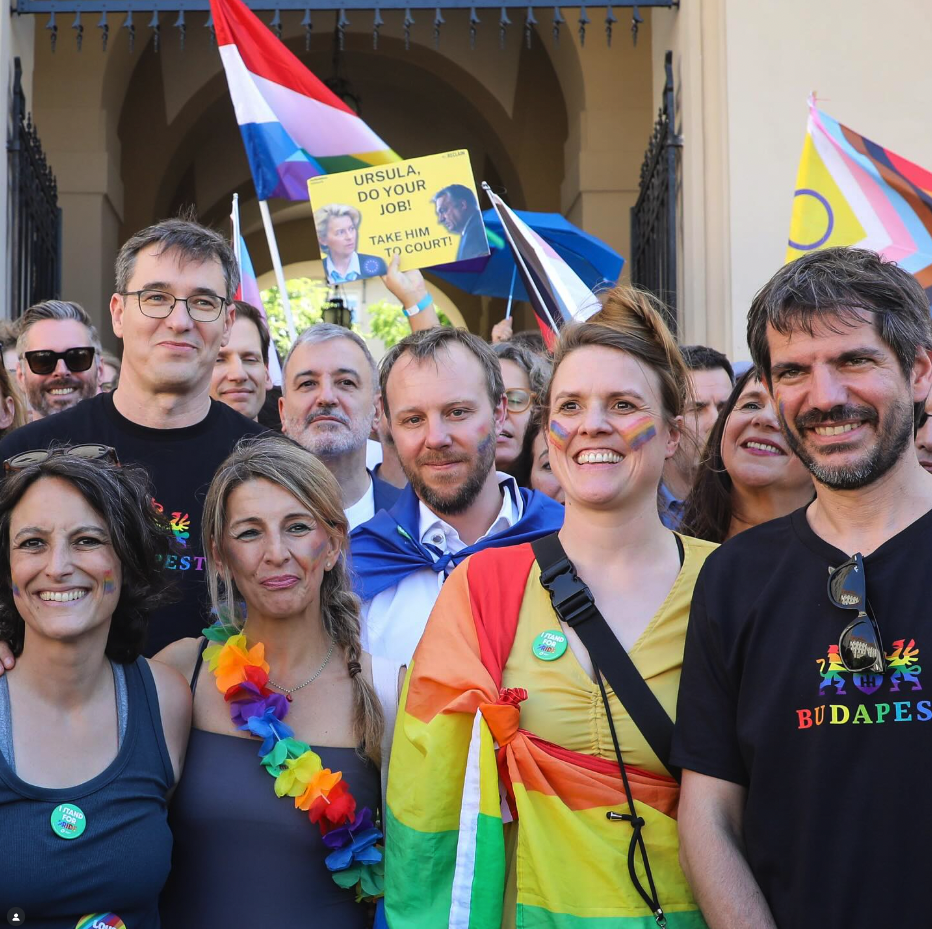Opinion
From palaces to protests: Hungary’s struggle at a crossroads
Budapest in mid-July presents a city of striking contrasts — a place where the grandeur of its architecture and the vibrancy of its communities stand in stark opposition to the deepening shadows cast by corruption and the erosion of democratic norms.
Over the past week, a delegation from the European Parliament’s Anti-corruption Intergroup, led by representatives from across the political spectrum, visited Hungary.
Their findings reveal a country where public wealth is diverted for private gain, yet where civil society’s resolve to defend freedom and dignity is stronger than ever.
The price of corruption in Hungary
One of the most telling episodes of the delegation’s visit was a tour of the Sandor-Metternich castle, located less than an hour from Budapest.
The estate, recently renovated at a cost of more than five million euros from EU funds, was intended as a catalyst for local tourism and economic development. Instead, the castle has been quietly privatised at a fraction of its value.
This case is emblematic of a broader pattern: European funds earmarked for the common good are routinely redirected into projects that benefit a select few close to the ruling elite.
The privatisation of public assets, often at suspiciously low prices, has become a hallmark of the PM Viktor Orbán government’s approach to governance.
The contrast between the ostentatious restoration of private estates and the crumbling state of public infrastructure could not be more stark.
In conversations with local entrepreneurs, journalists, and civil society leaders, the delegation heard repeated accounts of hospitals falling into disrepair.
In the midst of a heatwave, with temperatures soaring to 38 degrees, patients languish in wards without air conditioning. Funds meant for modernisation—including significant EU contributions—are lost to mismanagement and corruption, or diverted to pet projects such as private football stadiums.
Meanwhile, reports have surfaced that Orbán’s son-in-law recently acquired one of Budapest’s largest hotels, the Marriott, further illustrating the consolidation of wealth among the regime’s inner circle.
How funding fuels propaganda and weakens rule of law in Hungary
Despite mounting evidence of systemic corruption and abuse of EU funds, the European Commission continues to transfer billions to Hungary.
This policy has become increasingly difficult to justify, both to Hungarian citizens and to taxpayers across the Union.
The EU Commission’s reluctance to act decisively undermines the credibility of the EU’s commitment to democracy, transparency, and the rule of law.
Critics argue that the ongoing flow of funds not only enables the entrenchment of autocratic power in Hungary, but also erodes public trust in European institutions.
Upon arrival in Budapest, visitors are greeted by a barrage of government-sponsored billboards attacking European leaders such as Volodymyr Zelensky and Ursula von der Leyen.
According to local business owners, the Hungarian government now allocates six percent of its budget to “communication”—a euphemism for propaganda.
By comparison, Germany dedicates 4.5 percent of its federal budget to education and universities. This massive investment in state-sponsored messaging serves to distract from the government’s failures, legitimise its actions, and foster a climate of fear and division.
The recent ban on Budapest Pride must be understood in this context: a calculated move to mobilise conservative support and deflect attention from the regime’s deepening scandals and its miserable economic performance.
The Hungarian middle class is losing out due to corruption and the government's attacks on the independence of the courts, leading to a chilling atmosphere for foreign investments.

Budapest Pride signals hope and defiance
Yet, amid the gloom, signs of resistance abound. This year’s Budapest Pride was the largest since the fall of communism, with an estimated 200,000 to 300,000 participants taking to the streets in defiance of the government’s ban and the threat of hefty fines.
The demonstration drew support from the broad centre of Hungarian society.
The Green mayor of Budapest and 70 MEPs shielded the free exercise of European fundamental rights to free assembly and free speech.
The scale and diversity of the turnout sent a clear message: the desire for freedom, dignity, and self-determination cannot be extinguished by authoritarian decrees.
Hungary stands at a crossroads. The regime’s grip on power is tightening, but so too is the determination of its citizens to resist.
The European Union faces a critical test: will it uphold its founding values, or will it allow them to be eroded from within? The time for words has passed.
Concrete action is needed to ensure that EU funds serve the people, not the powerful, and that the promise of democracy remains alive for all Europeans. All EU funds must be frozen so that the independence of the judiciary and media are sooner, not later restored.
The struggle for Hungary’s future is not a local matter—it is a European one. The responsibility to act lies with all who cherish the principles of democracy, transparency, and human rights.
This year, we turn 25 and are looking for 2,500 new supporting members to take their stake in EU democracy. A functioning EU relies on a well-informed public – you.
Disclaimer
The views expressed in this opinion piece are the author’s, not those of EUobserverAuthor Bio
Daniel Freund is a German Green MEP focused on transparency, strengthening democracy, and combating corruption.
Related articles
Tags
Author Bio
Daniel Freund is a German Green MEP focused on transparency, strengthening democracy, and combating corruption.